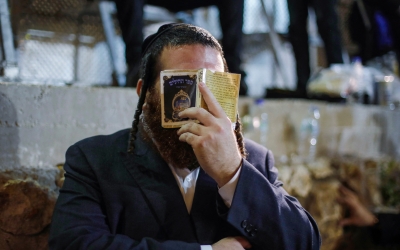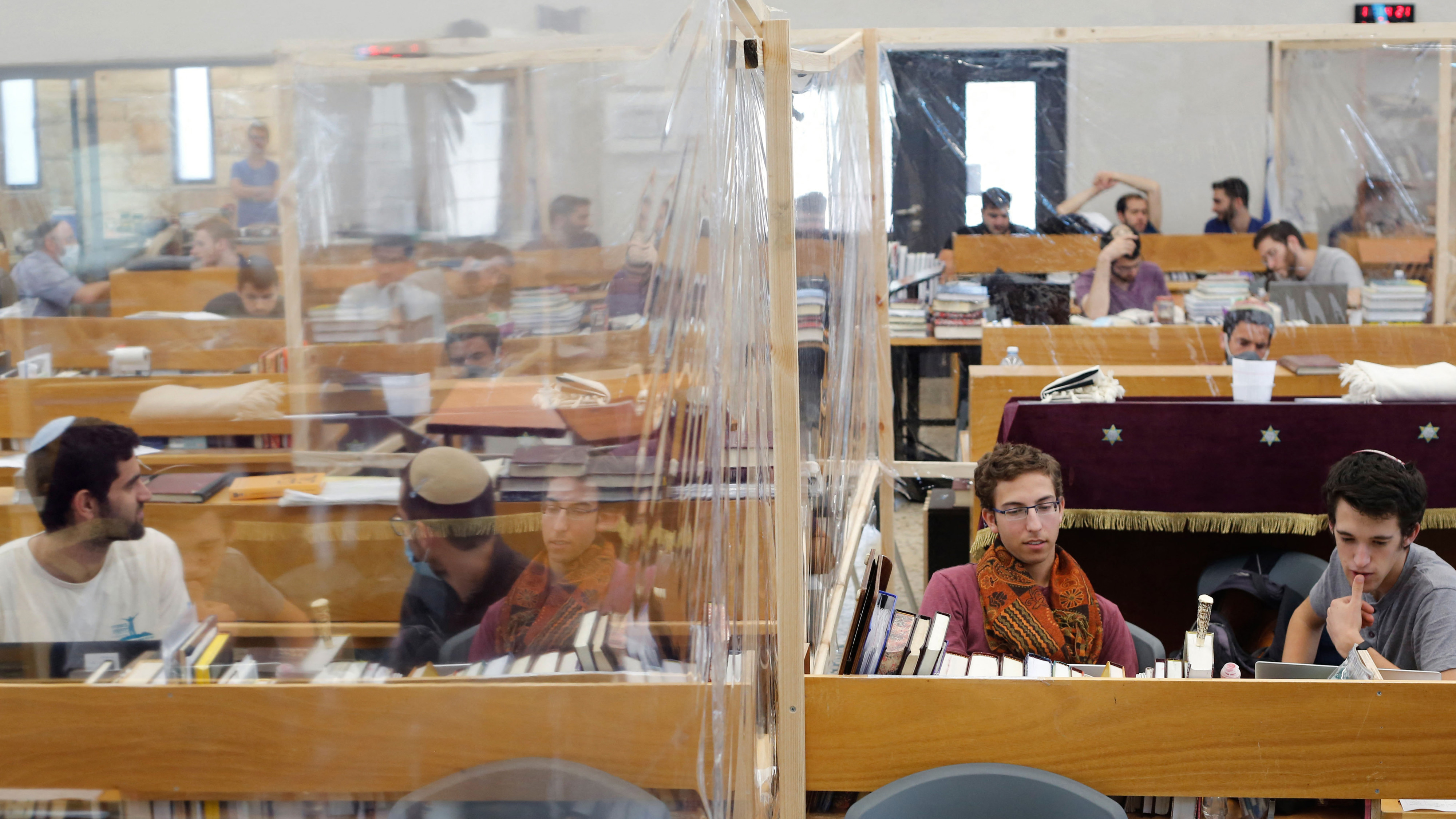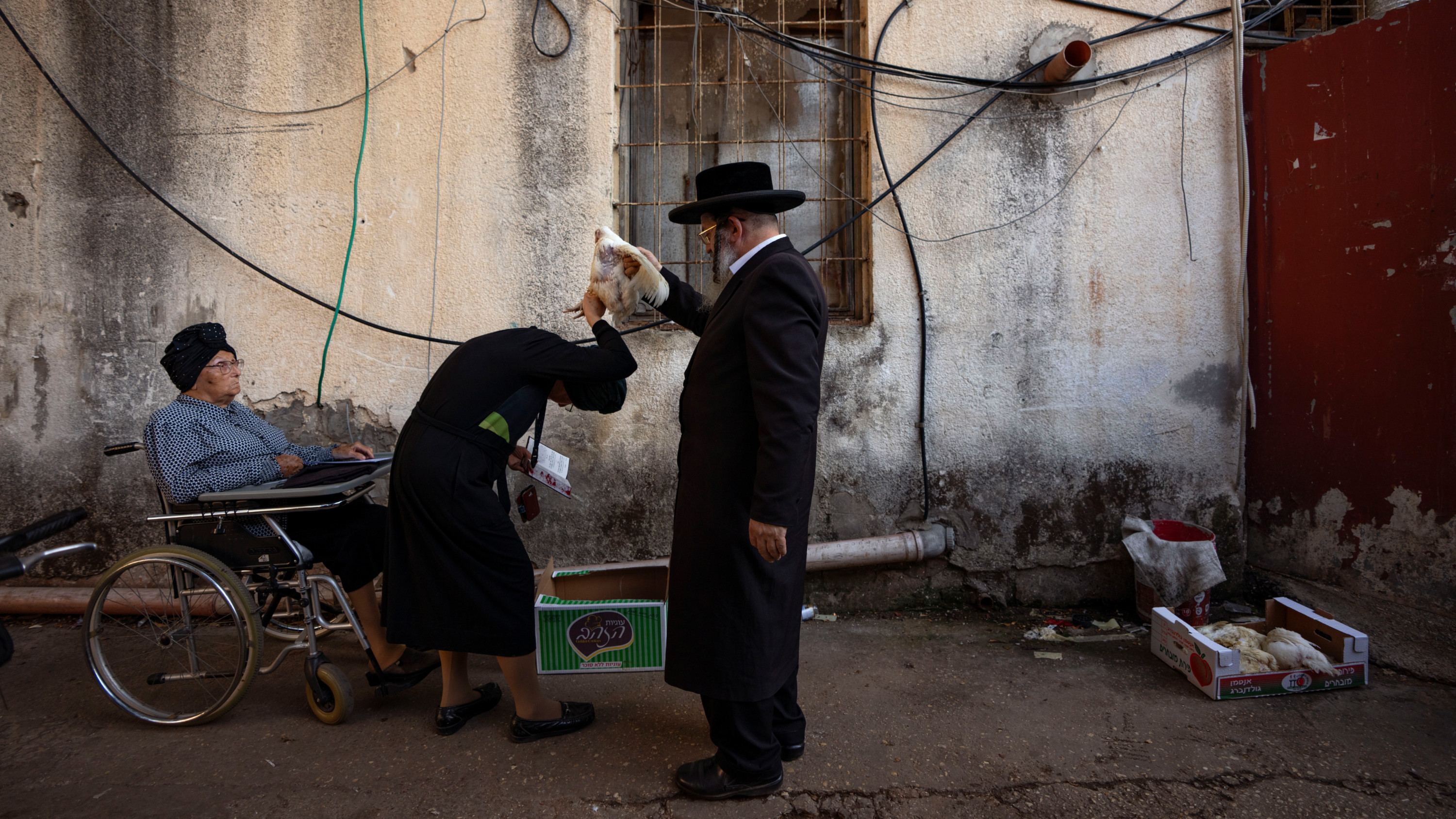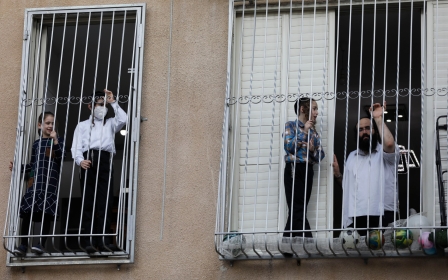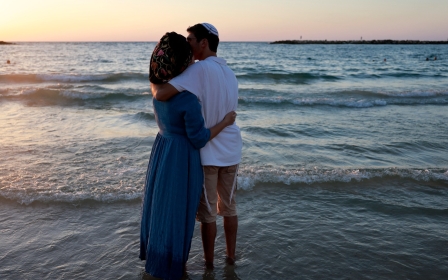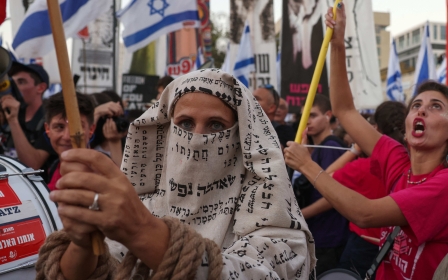Israel's other looming showdown: The ultra-Orthodox army draft exemption law
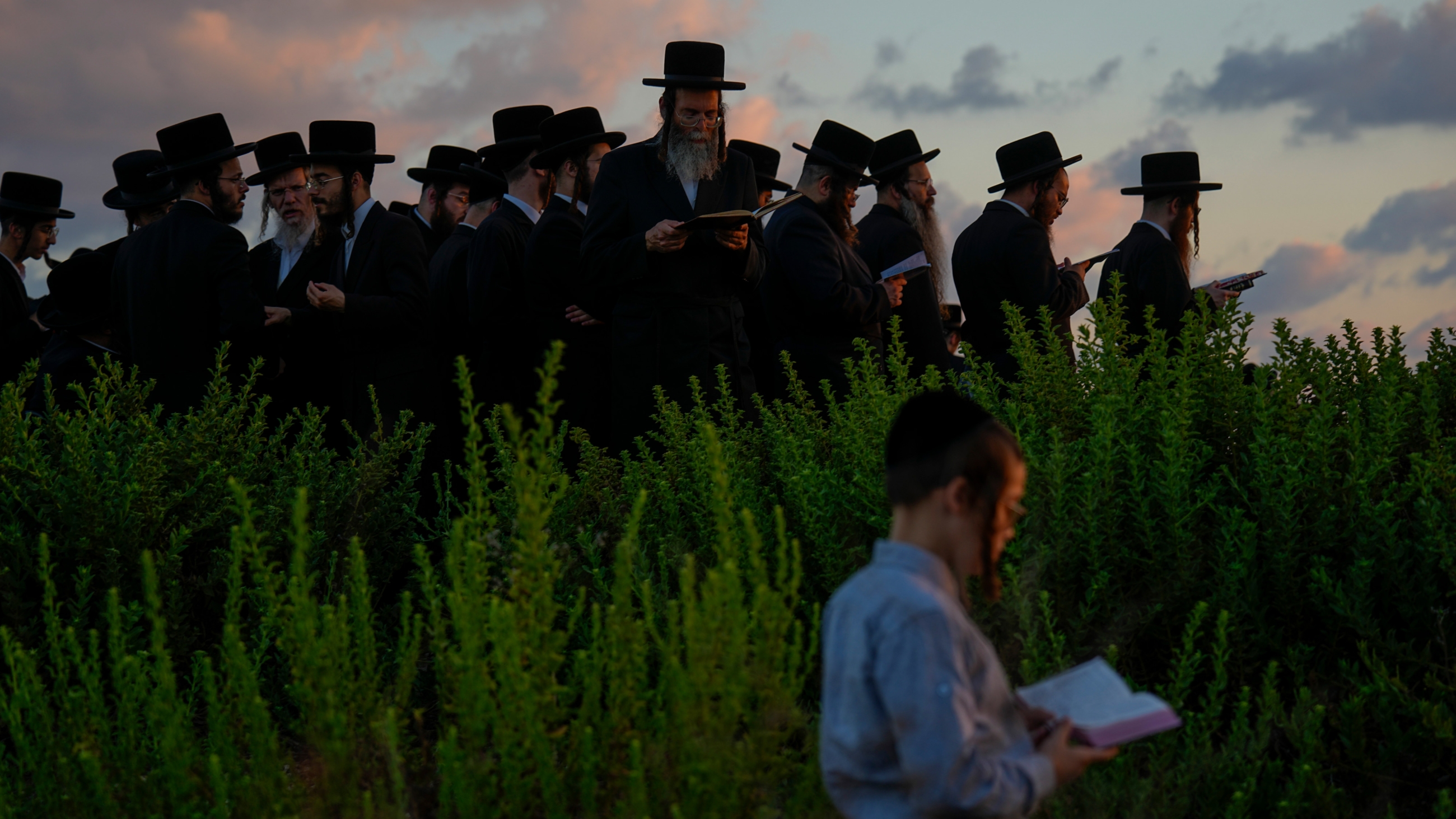
Amid the political turmoil in Israel, one age-old issue is slowly coming back to the centre stage of public debate: the military draft exemption of ultra-Orthodox men.
It’s an issue that has polarised Israelis since the early days of the state, pitting secular and non-Orthodox Jews against the ultra-Orthodox community, otherwise known as the Haredim.
It all started when the country’s first prime minister, David Ben-Gurion, agreed in 1951 to exempt 400 ultra-Orthodox youth from military service so they could study the Torah in Talmudic schools, or yeshivas.
The exemption was made because of the severe blow the yeshiva world suffered in the Holocaust, as well as Ben-Gurion’s desire to reach agreements with the ultra-Orthodox leadership for his coalition.
According to the law, a yeshiva student must commit to devoting 45 hours a week from the age of 18 to Torah study, and not to engage in any other occupation beyond these hours.
Stay informed with MEE's newsletters
Sign up to get the latest alerts, insights and analysis, starting with Turkey Unpacked
Starting at the age of 22, a married student can defer military service and engage in another occupation for which it is acceptable to earn money outside of school hours.
The Israeli military approves the status after the yeshiva head and the secretary signs it, and the deferral must be renewed every year. At the age of 26, a full exemption from army service is granted.
In 1977, the Likud government under Menachem Begin - also driven by coalition agreements - removed the 400-student limit.
The result has been a jump in the number of exemption recipients more than 100 times since then, leading to public criticism on the grounds that it violates the principle of equality.
It is an ongoing issue particularly because the Haredim population has the fastest-growing rate in the country, which means a higher percentage of Israeli men not drafted for military services over the years.
In 1974, about 2.4 percent of eligible men were given exemptions, mostly yeshiva students. In 2021, the rate of yeshiva students exempted jumped to over 17 percent.
There are about 1.28 million ultra-Orthodox Jews in Israel, comprising around 13 percent of Israel’s 9.45 million population. Among young people of conscription age, they comprise around 18 percent.
This is a sector that doubles itself every 16 years. According to the forecast of the Central Bureau of Statistics (CBS), they will make up about a third of Israel's population in 50 years.
However, the draft exemption arrangement has not always existed without obstacles. Legal challenges since the 1990s have forced many alterations to the law and continue to put it under question.
As of June, the law allowing these exemptions has expired and all eyes are now on the government to pass new conscription legislation.
With ultra-Orthodox parties forming a key part of Prime Minister Benjamin Netanyahu’s governing coalition, they will look to enshrine the draft exemptions further, and ultimately the polarisation they cause.
Legal challenges
The first legal pushback against the exemptions came in 1998 when the High Court of Justice ruled that the arrangement was illegal and that the parliament, or Knesset, must enact a new law on the matter.
The same year, a draft bill was introduced that allowed yeshiva students to defer their service until the age of 23. After that, they were given three options: return to the yeshiva, sign up for a shortened military service according to family status (an ultra-Orthodox man married with two children serves a period as short as 120 days) or perform national service for a year and a half.
The Tal law, as it later became known, was passed in the Knesset in 2002 by a majority of 51 against 41.
But in 2012, the Supreme Court ruled it was illegitimate and should therefore be annulled. Another law in 2014 was struck down three years later with the court citing similar reasons.
Since then, the government has been granted several extensions of the repealed 2014 law by the court, pending political stability and a parliamentary majority that can introduce a new law.
The last extension expired in June, and the government must present a new bill before the end of March 2024, leaving many ultra-Orthodox youth in limbo and the general Israeli public in anticipation of what might come next.
Yitzhak Pindrus, an MP with the ultra-Orthodox United Torah Judaism (UTJ) party, describes the current situation as “lawlessness”.
“Right now the situation is that an 18-year-old ultra-Orthodox man who wants to study in a yeshiva can't do it because he doesn't have a legal way, that's lawlessness,” Pindrus told Middle East Eye.
“There is currently a significant decrease in the number of recruits and there is an understanding that this is a result of the protest and demonstrations against us,” he added.
According to Bezalel Cohen, a Haredi rabbi promoting educational reform in yeshivas, ultra-Orthodox parties condition their support for the coalition on the passage of the law, regardless of the repercussions.
'Among the protest ranks in Israel, there is a great determination not to allow such a law to pass'
- Bezalel Cohen, a ultra-Orthodox rabbi
“If the law is nevertheless submitted, it is clear that someone will petition the court and this government has no tools to prevent his disqualification in court,” Cohen explained.
“But the ultra-Orthodox representatives do not care, they demand the implementation of the agreement no matter what or how.”
One stream of the ultra-Orthodox community in Israel, the Lithuanians, are willing to agree to a possible government proposal that would compel Heredi youth who don’t wish to join the yeshiva to be drafted into the army, according to Cohen.
But the Hassidim, another stream, unequivocally believe that no Haredi men should enlist, no matter what. Ultimately, the Lithuanians, as well as Sephardi ultra-Orthodox Jews, were forced to line up with the Hassidim, he added.
“This is an expression of the extremism that exists in ultra-Orthodox society today - as far as the Hassidim are concerned, there is no such thing as any man going to the army, they demand a full and final exemption.”
Work or study?
Cohen, a well-known figure in the modern ultra-Orthodox society, has been working for years to promote educational reform in yeshivas. He encourages young people who are unable to devote 11 hours a day to Talmudic studies to enlist and acquire an education that will enable them to make a decent living.
He is a vocal critic of the rabbis who do not allow young people to acquire an education outside of yeshivas, which he argued could help them get out of the severe poverty that is affecting many members of the ultra-Orthodox community.
One of the main features of the new government bill will focus on lowering the age of exemptions from 26 to 21 or 23, allowing ultra-Orthodox youth to enter the workforce at a younger age, according to media reports.
A survey conducted by the Israel Democracy Institute in 2020 found that around 20-33 percent of ultra-Orthodox youth aged 18-30 would be willing to leave the yeshiva and enter the labour market if the exemption age is lowered.
“The current high exemption age - 26 years - prevents many young ultra-Orthodox men from acquiring a profession and going to work,” said Moshe Lefkowitz, founder of Afikim, an organisation that works with young underprivileged children in Israel.
Lefkowitz, who is from the Hassidim stream, added that the current arrangement feeds the impoverishment of Haredi youth.
“Ultra-Orthodox men [typically] marry at the age of 22 and by the age of 24 they are already parents, they do not have the free time needed to acquire an academic or professional education, and the burden of earning a living directs them to professions with low levels of productivity,” he explained.
This is why the question of the age for exemption is critical. If it is lowered to 21, then most ultra-Orthodox youth can leave the yeshiva without the risk of being drafted, and can then find a good job to earn a decent living before having a big family.
However, this is exactly the heart of the opposition for many. A typical young Israeli who has served in the army for three years is released at the age of 21. Most travel around the world for a year or so before they start studying at the age of 22 or 23.
Meanwhile, an ultra-Orthodox young man released from conscription at the age of 21 will immediately start working, an inequality at the heart of why many Israelis oppose the draft exemptions, and why many will be determined to stand against it.
“The non-enlistment of yeshiva boys has been challenging the military and the ethos of ‘the people's army’ accepted by most of Israeli society for many years,” Cohen told MEE.
“Among the protest ranks in Israel, there is a great determination not to allow such a law to pass.”
Middle East Eye delivers independent and unrivalled coverage and analysis of the Middle East, North Africa and beyond. To learn more about republishing this content and the associated fees, please fill out this form. More about MEE can be found here.


